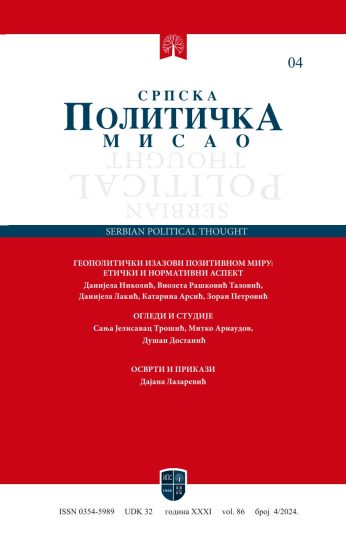US FOREIGN POLICY IN THE 21ST CENTURY AND THE QUESTION OF MORALITY IN INTERNATIONAL RELATIONS IN THEORY AND PRACTICE
The development of modern and powerful countries is conditioned by the need to possess and control significant amounts of resources. Out of the desire to increase the real power and influence of the global political plan, the great powers create conflicts, . . .
THE DRAWBACK OF LIBERAL NATIONALISM AS A CONDITION FOR POSITIVE PEACE IN THE BALKANS
The subject of the paper is liberal nationalism as the only acceptable form of nationalism for the Balkans, which has been imposed and allowed by the so-called great forces (the EU and the USA) after the end of the Cold War for this, from a political and ethnic . . .
TREATY ON PROHIBITION OF NUCLEAR WEAPONS - POSITION, IMPLEMENTATION AND SIGNIFICANCE
Although there was а opinion that the Treaty on Prohibition of Nuclear Weapons would represent the end of the era of the development of this type of weapon and the threat of nuclear war, this did not happen, having in mind that no country possessing a nuclear . . .
CONTEMPORARY IRREGULAR MIGRATIONS IN THE REPUBLIC OF SERBIA: ETHICAL NORMATIVE ASPECTS
This paper examines global and regional trends in contemporary irregular migration, which reflect complex economic, political, social, and security factors, which, as such, reflect on the Republic of Serbia. Analyzing the ethical norms of migration, the author . . .



